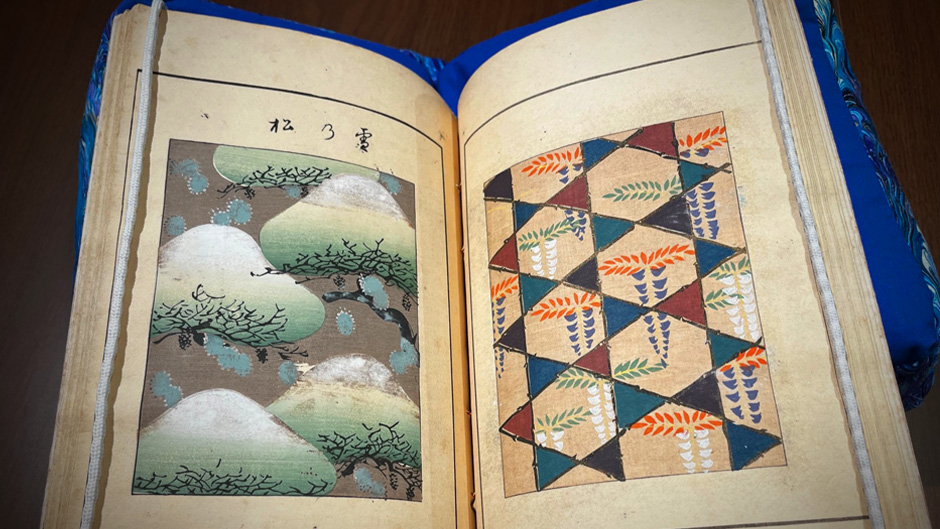Federal legislation enacted in 1977 designated the first 10 days of May to celebrate Asian American and Pacific Islander (AAPI) heritage in the U.S. The recognition was expanded to the full month in 2016 in a proclamation by then President Barack Obama, who pointed to AAPIs as “the fastest growing racial group in the country” and who stated that “the community's long and deeply-rooted legacy in the United States reminds us of both proud and painful chapters of our history.”
University Libraries feature a range of resources recognizing the cultural heritage, from artists’ books in Special Collections by Colette Fu, Julie Chen, Priya Pereira—whose Ode to an Onion includes a page made of onion skin—to a 120-volume 1884 history of China, a work in Chinese that undergraduate student Yuan Zhao is perusing for her research.
Digitalized material, including Asian and Pacific airmail, is contained in an expansive collection that documents Pan American World Airways history of flights across the Pacific and Asia, including early flights from San Francisco to Hong Kong in the 1930s.
Those interested in exploring AAPI contributions in the libraries could also pursue keyword searches for Japan, China, India, including East India in the Caribbean, and Asia.
A wide range of works from notable AAPI writers including Cathy Park Hong, Maxine Hong Kingston, Jhumpa Lahiri, Erika Lee, Marie Myung-Ok Lee, Viet Thanh Nguyen, Albert Samaha, Mai Der Vang, Ocean Vuong, Qian Julie Wang, and Kao Kalia Yang, among others, also can be referenced.
In the creative writing program, first-generation Asian American and Pacific Islanders M. Evelina Galang, professor and former director, and Jaswinder Bolina, an associate professor, both have generated works that document AAPIs contributions.
As the editor of “Screaming Monkeys: Critiques of Asian American Images”—an anthology sparked by a restaurant review that referred to a Filipino child as a “rambunctious little monkey”—Galang collected poems, essays, paintings, and stories that illuminate “the diverse and often neglected history and culture within the Asian American diaspora,” according to one review.
Galang’s nonfiction work, “Lolas’ House: Filipino Women Living With War,” earned a Global Filipino Literary Award.
Special Collections materials are available for use in the Kislak Center reading room by appointment only. You must book an appointment at least seven days in advance.

